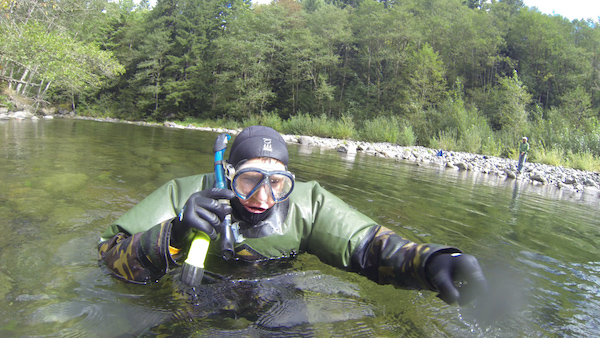WDFW, Wild Fish Conservancy Appear Ready To Settle Lawsuit
WDFW and Wild Fish Conservancy appear to have reached a settlement in a case that began against the new hatchery summer steelhead program on the Skykomish River and mushroomed to involve dozens of important salmon and steelhead production programs up and down the I-5 corridor.

Under a consent decree signed by both parties and filed in U.S. District Court for Western Washington yesterday, the agency would pay the highly litigious organization known for its low-hanging-fruit and orca-starving lawsuits and other ridiculous actions to perform multiple annual snorkel surveys on the North Fork Sky and South Fork Tolt Rivers for four years, which will annually cost taxpayers an estimated $38,000 to $44,000, or around $152,000 to $176,000 in total.
Meanwhile, WFC promises not to sue WDFW over alleged Endangered Species Act or National Environmental Policy Act violations at 43 Puget Sound and Lower Columbia facilities rearing Chinook, coho and chums, except if hatchery managers decide to boost smolt releases above federally approved levels.
WDFW also agreed to work as quickly as possible to get hatchery genetic management plans for all those programs from the National Marine Fisheries Service, with the sideboard that doing so is dependent on cooperation from tribal comanagers and the speed at which NMFS works and that WFC would be reasonable in allowing for extensions to meet those goals.
The decree would also release WDFW from alleged ESA violations at 14 agency hatchery programs, including for the integrated South Fork Sky summer-runs, seven others in Pugetropolis and six in the Lower Columbia.
The settlement awaits the green light from federal District Court Judge Jamal N. Whitehead, who is presiding in the case.
Late this afternoon a WDFW spokesman said the agency had “no comment at this time.”
The lawsuit began back in February 2021 when WFC went after WDFW’s new integrated summer-run broodstock program on the Sky, northeast of Seattle. Ultimately, Judge Whitehead dismissed the claim this past February because it was moot.
But he also allowed WFC to amend its complaint to include programs producing some 17.65 million spring and fall Chinook reared and released from Nooksack, Samish and Deschutes Rivers and Minter, Chambers and Purdy Creeks hatcheries, as well as just under 6 million springers, fall coho and fall chum from facilities on the Lewis and Cowlitz Rivers.
The Duvall-based outfit claimed the programs “harm” and cause “take” to ESA-listed salmon, steelhead and bull trout, and that that take “is not authorized or otherwise exempt from liability under section 9 of the ESA.”
Inclusion of the hatcheries drew concern from five Western Washington tribes. Earlier this spring they filed court papers to intervene in the case so they could then move to dismiss it. They didn’t trust WDFW to represent their viewpoints and worried the agency might agree to an adverse settlement.
Today’s news appears to have been broken originally by Bloomberg Law, coverage of which seemed to indicate it was a win for WFC, judging by its paywall-protected lead two paragraphs.
WFC originally had asked for Judge Whitehead to award attorney and expert fees, but this week’s consent decree doesn’t specifically award any, leaving the organization and its Kurt Beardslee to swim with the fishes to collect a payday for the time being.

